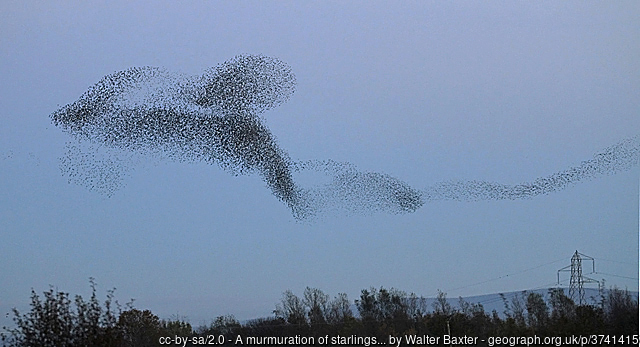10Aug
24Feb
The Art of Leading Together: How to develop your Collaborative Advantage
Here's an open lecture I gave at the Institute For Leadership And Sustainability (IFLAS) in Cumbria on 11th June 2019. Based on workshops I've been running since 2016, this talk squishes a full day's content into 57 mins. I suggest you start at 3m 32s to save yourself the intro whiffle. If you decide to watch, please give me feedback - I always love to hear what people find most interesting or useful so I can learn from that. https://www.youtube.com/watch?v=3f04B88cGP0&feature=emb_logo
22Feb
Books to help you work well with people
People are tricky. We’ve got a lot of moving emotional parts, so we do well when we handle each other with care. Innocent mistakes are easily made and work can really suffer if things go wrong when we’re trying hard to get it right. The trouble is, the saying ‘you can’t please all of the people all of the time’ is true. So how best to deal with that? I’ve spent 26 years studying people skills closely as I’ve helped people collaborate and build partnerships. This article is a quick share of some of the ‘go to’ books I recommend when coaching people in the art of leading together. Hope you find them as useful as me. Humankind, a hopeful history by Rutger Bregman is a valuable read because it gives clear evidence in favour of having faith in others. Bregman puts the stories of mistrust and conflict that surround us...
09Feb
Leaders in Coworking Flock to put people and planet first
I've just published a piece on my Medium page about how I'm helping to bring coworking leaders across the UK together for the benefit of people and the planet. The impact of coworking on UK society is hugely underestimated. It's a hotbed of innovation and change, and rich in people whose work reflects concerns about the 'big' social and environmental issues of today. This is partly because the sector is full of very driven independent entrepreneurs - so it's self-organising by nature. Just like nature, it's power to make vast changes comes through the magnifying effect of many small actions. The magic of self-organising comes from the freedom to act swiftly, experiment and learn. But! There are flip sides to everything, and duplication occurs if lots of independent people act fast, responding to similar conditions. That's not a bad thing - often it's part of the way the problem gets solved, but...
03Sep
15 years ago I made nature my boss: Here’s what she taught me about running companies
The way a company is run depends mainly on the goal. There’s lots of guidance like ‘9 types of organisational structure every company should consider’, but most company designs start out ad hoc. It’s not until something significant changes that people start to focus on what they’ve created, as this excellent article from MindTools explains. Since people tend to feel safer with the clarity of command and control, it’s by far the most common strategy, but it has its pitfalls. Elevating responsibility concentrates risk, and those who shoulder that burden are likely to demand more, and to spend more as they seek to justify, protect or force their positions. The irony is that the feeling of control is often far greater than the reality. Nature does things differently. In 2005, I played a key role in creating The Association of Sustainability Practitioners. Since the goal was to promote sustainable behaviour, I had a hunch the organisation...
02Sep
Appreciative Inquiry workshops for board members
This post outlines workshop content for helping board members develop a strengths-based positive approach to leadership development and organisational change.
21Feb
Simon Sinek on Leadership
Liz arrived back from the World Government Summit in Dubai this month armed with a wealth of fascinating new knowledge, connections and ideas. She spent time with John Helliwell, Jeffrey Sachs, Don Norman, Tim Kobe, Daniel Kahneman, Charles Montgomery and Martin Seligman among others. This simple expression from Simon Sinek though, strikes a real chord. More on his presentation about Leadership in an infinite world anon. "Leadership is not about being in charge, leadership is about taking care of those in your charge"
30Oct
Collaborative Advantage
Earlier this year I felt very pleased with myself for having come up with the phrase' Collaborative Advantage'. The phrase came to me in the context of conversations about competitive advantage, which I argued was only part of the story, and the weaker part at that. My theme was (and is) that the most successfully competitive people are not the egoists, but the magnanimous. I mentioned the idea to several people over the course of about 10 days, developing the idea as I warmed to my theme, thinking myself really rather clever. Deciding I should write something about Collaborative Advantage, I sat at this machine and googled the phrase, just in case somebody had thought of it before. Of course they had! Twelve years ago, Elizabeth Lank wrote 'Collaborative Advantage - how organisations win together by working together' which is pretty good but doesn't acknowledge Jeffrey Dyer's 'Collaborative Advantage - winning through extended supplier networks' published in 2000. ...
24Jun
The Achilles Heel of Strong Leadership
Strong leadership is generally seen as a good thing, presented with the unspoken assumption that the alternative is weak. But this assumption contains a devastating flaw. The Achilles heel of ‘strong leadership’, is that it’s very easy to cross the fine line from intelligence to belligerence. The top brass of the First World War were undoubtedly ‘strong’ – sending millions Over The Top to pointlessly certain death. They may seem like dinosaurs from another era, derided for their myopia, but their attitude was the same as ‘The Lady’s not for turning’ mantra that inspires so many Thatcher fans in business and in politics today. Unflinchingly ‘strong’ leadership though, requires the courage to acknowledge when things are going wrong. Unless our strong leaders have a ‘U turn policy’, their fear of being seen to be weak can overpower their intelligence. My U turn policy would look like this: ‘If new evidence comes to light,...
26Aug










